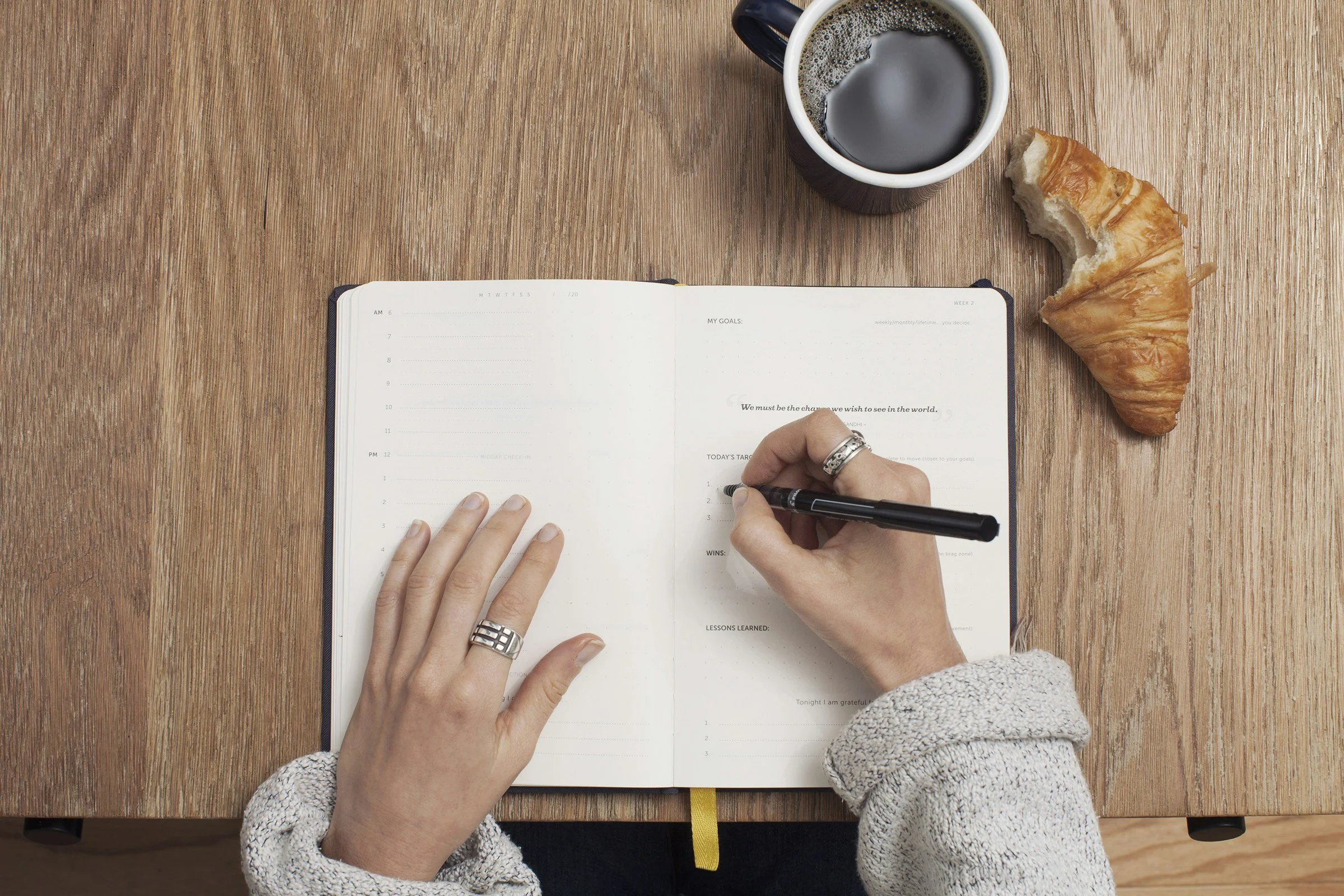Dear Diary: Last week I led a workshop…
Laura Paton is a part-time PGR in her first year researching the institutionally constructed memorialisation of Adam Smith at the University of Glasgow and its impact on the community and their cultural memory. (Laura’s LinkedIn). Laura recently hosted a workshop called ‘Dear Diary: A PGR’s guide to reflective writing’ as part of the Write of Spring Festival 2025.
I cannot think of a better way to live and embody my own reflective writing practice than to share an entry from my own journal where I reflected on the experience of facilitating Dear Diary.
Here, I have applied the What? So What? Now What? framework to move through the reflection process towards self-development and action.
What? (Describe)
Last week I ran a workshop on how to keep a reflective journal as a PGR. I worked with the Researcher Development team to develop upon and refine my initial concept. The workshop explored the benefits of reflective writing and the approaches and frameworks available to PGRs as they navigate their uncertain and challenging journeys. I drew heavily on my own experience of keeping a reflective journal, because nothing beats lived experience, but I also consulted research to reinforce the reliability of my recommendations.
It was a glorious day when I woke up on Friday morning and I started my day by rehearsing my workshop presentation, fine tuning my timing and delivery. My workshop was in the afternoon, so I headed on to campus to get set up. Considering the sunshine and clear skies, I was frankly a bit shocked when so many of my peers arrived to take part!
Together, we worked through a reflective icebreaker, my presentation content and a facilitated reflective writing session, with a much-needed break for tea and cake in the middle of proceedings. Everyone was very engaged and enthusiastic, and I was grateful to them for making it such a positive experience for me and for their peers. I couldn’t have asked for better attendees!
So What? (Reflect)
Facilitating workshops used to be second nature to me, but on the lead up to my session I admit I was feeling uneasy. The thought of hosting a workshop suddenly felt intimidating and a bit foreign – something old me used to do with ease, that was now a bit beyond me and my current abilities.
Much like writing, facilitation is a muscle you need to strengthen through sustained and regular practice. I had allowed my facilitation skills to atrophy through years of neglect and work behind a desk. With no guarantee that my muscle memory would kick in and save the day, I spent *tonnes* of time preparing my workshop, until I knew my materials back to front.
I reminded myself that I was running this workshop because I had something valuable to share, something I believed my peers would find useful. Since starting my reflective journal last October, I have enjoyed countless benefits. I applied to host this workshop because I wanted the opportunity to share what I had learned with my peers, so that they could experience those benefits, too. The materials I had produced were useful, my advice was useful, and this session was going to be useful, at least that is what I told myself.
When I began the workshop, those familiar feelings of uncertainty came over me like a wave, but I persevered through the initial jitters. As the minutes passed, I fell into a familiar rhythm and shifted comfortably back into the role of facilitator. By the end of the two hours, I was sad that it was over, wondering when I would next get my facilitation fix. After receiving encouraging and positive feedback from the attendees, I walked out into the sun on cloud nine, feeling confident that I had run a good workshop that they had found useful. Success!
Now What? (Plan)
Moving forward, I am committed to three key areas of development;
Actively seeking out more facilitation opportunities. I want to focus on this aspect of my academic and professional development, so that running these events continues to feel like second nature.
Integrating what my peers shared during the session into my own reflective writing practice and the workshop’s design. I hope to run this session again in the future and want it to be a dynamic resource which is improved and refined each time I run it.
Exploring what value my reflective journal holds as a resource for my thesis itself. Recently, I have been looking into the role of case study logs, and I believe my journal could be incorporated into this chain of evidence.






